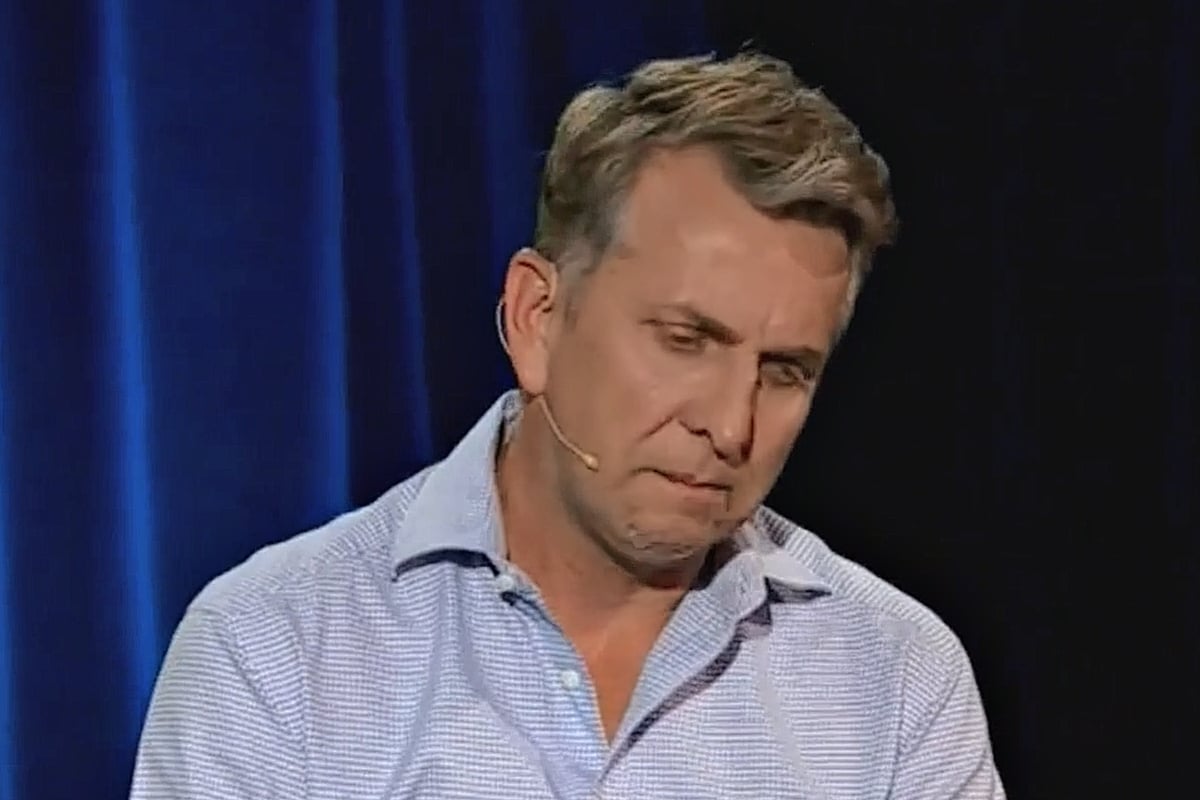
On Monday night’s episode of Q&A we saw a man visibly shattered by what he and his community have endured during the bushfire crisis.
The South Coast resident fled his home at Malua Bay on New Year’s Eve, with little more than hope that the 5,000L of water he’d doused upon his property would serve as armour against the fast-approaching front.
He spoke of feeling the air thick with heat and hearing the roar of the flames, of joining more than 1,000 people huddled on the local beach for safety, and of the toll that the crisis has taken on his mental health in the weeks since.
“Pretty much every second and third night we’ve been having beers in the lane at home with my neighbour. Just to get through it,” he said.
That man, leaning on his neighbour, just trying to get through it, happens to be NSW Liberal MP Andrew Constance.
WATCH: “I’m going to need proper counselling.” Andrew Constance on the toll of the bushfire crisis. Post continues after video.
Mr Constance is the state’s transport and roads minister and the member for Bega, one of the regions worst affected by the ongoing disaster.
But during his appearance on the ABC panel programme’s bushfire special, we saw beyond Andrew Constance, the politician; we saw Andrew Constance, the man. Vulnerable, empathetic, determined, honest.




























































































